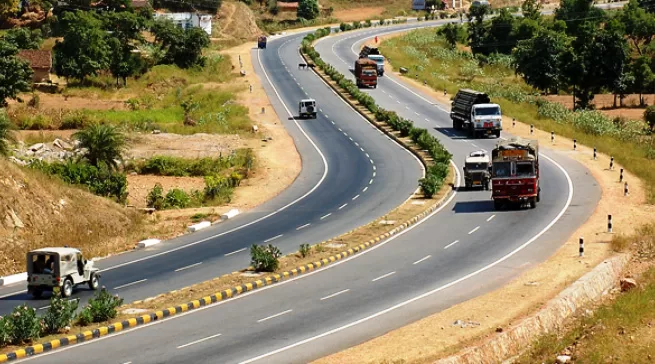After a period of intense activity, the construction of national highways is expected to experience a slowdown in the latter half of FY25. This deceleration is primarily attributed to a reduction in the number of projects awarded in FY24. By November 2023, projects for the construction of only 2,817 km had been awarded, a significant drop from the 5,382 km awarded during the same period the previous year.
The Ministry of Road Transport and Highways (MoRTH) has acknowledged the challenge and emphasized the need to expedite the approval of the revised Bharatmala Phase-1 project or consider alternative programs to meet the targeted awards for FY24. The looming model code of conduct for the Lok Sabha elections, effective from January to March 2024, is expected to further exacerbate the shortfall. Historically, March accounts for 40-45% of road project awards in a year.
Ashish Modani, Vice President and Co-Group Head (Corporate Ratings) at ICRA, commented, “We went through MoRTH’s commentary. ICRA has maintained that the overall award in FY24 will be lower than last year.” ICRA has revised its forecast for MoRTH’s road awards in FY24 to 7,000-7,500 km, reflecting a 40-43% decline year-on-year.
Breaking down the awarding process, Modani explained the time lag involved, stating, “If you award, say, in July, August or September, then financial closure and so on happen six months down the line, ahead of the appointed date. So, it generally takes 8-9 months for work to begin after the awarding.” While ongoing projects in FY24 are progressing smoothly, a slowdown in awarding during the current fiscal year could impact execution in the second half of FY25 and FY26.
ICRA highlighted that the delay in Cabinet approval for the revised cost of Bharatmala Phase-1 has hampered the project awarding process in recent quarters. The industry is witnessing a gradual shift from the ‘engineering, procurement, and construction’ (EPC) route to ‘build, operate, and transfer’ (BOT)-toll projects, which require less funding support from the ministry.
Rakesh Kalsi of TruBoard Partners noted challenges in NH projects, citing cost overruns and delays. Resolving these issues is crucial for the success of the Bharatmala Pariyojana Programme (BMP) Phase-1, which has seen only 75% of the estimated project length awarded, while the financial cost has exceeded initial estimates.
Sankar S, co-founder of InCoBAN, highlighted the decline in construction under Bharatmala-1, affecting smaller contractors. To attract larger contractors for national asset construction, the government is adjusting bidding norms, impacting contractors in the micro, small, and medium enterprises (MSME) segment.
Regarding the impact of the upcoming general elections on national highway construction, Modani stated, “This is already built in by participants. Generally, a lot of order awarding happens in February and March every fiscal year. So, only December 2023, and January-February 2024 are left before the electoral model code of conduct comes into effect and awardings grind to a standstill.”


